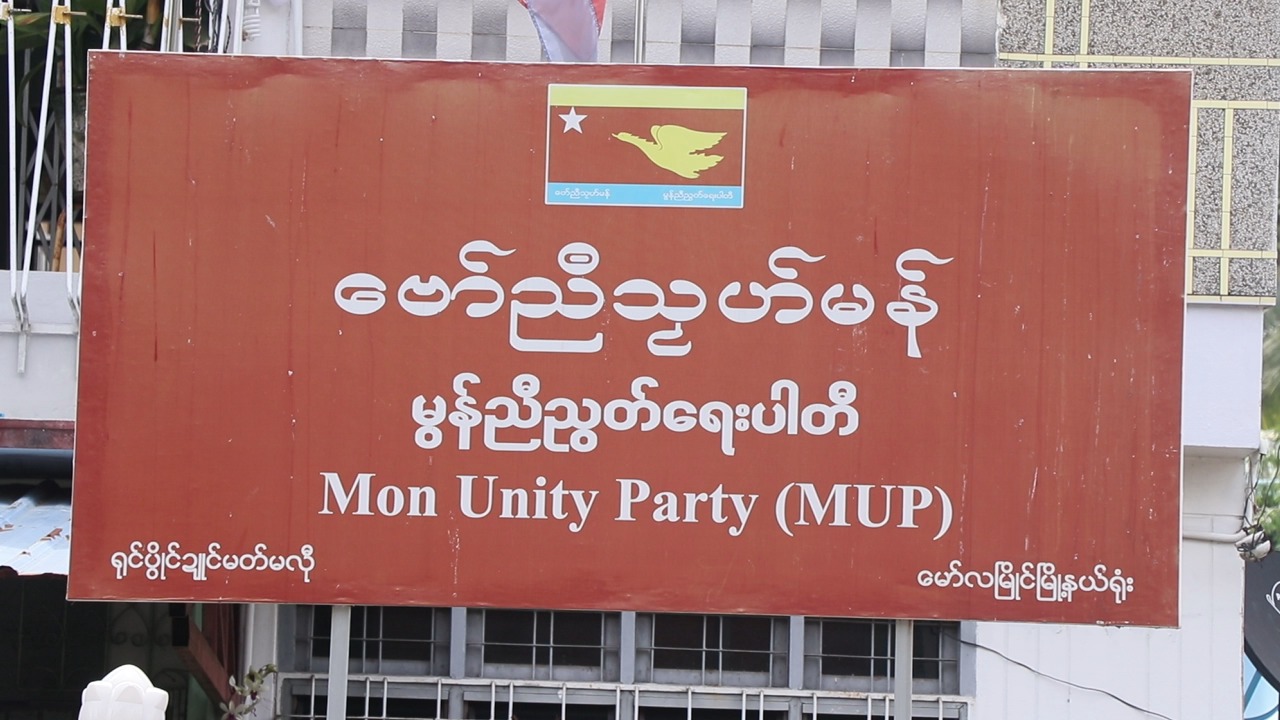Nay Pyi Taw, 25 October
Some political parties, including the Mon Unity Party, which applied to the junta-established Union Election Commission (UEC) to continue as a party, are eagerly awaiting approval for party registration.
The military council, which seized state power by force, re-enacted the Political Parties Registration Law in late January 2023 to hold a multi-party democratic general election.
More than 60 political parties applied for party registration, but the commission only permitted them.
Among the political parties that have not yet received registration approval are the ethnic political parties that won the 2020 general election, such as the Arakan National Party (ANP) and the Mon Unity Party (MUP).
Despite the fact that these two parties were nationally organized political parties, they were only allowed to register at the state level under the Political Party Registration Law.
According to Arakan National Party Chairman U Thar Tun Hla, the military council’s refusal of party registration approval to major parties has some purposes.
In the 2020 general election, the Rakhine National Party ran at the union level in some other regions and states, including Rakhine State, and was the fourth largest winning party nationwide.

The Mon Unity Party, which sent two representatives to the military council following the military takeover, asked the Election Commission about the months-long process of party registration approval, according to the party.
According to a member of the party’s central executive committee, if the military council holds elections without the Mon party, there will be criticism, and they believe that the military council will not exclude the Mon party from the election.
In late August, the Mon Unity Party applied to the Election Commission for permission to establish a political party that would organize at the state level under the name of the Mon Progress Party for the Karen State.
The Than Lwin Times tried to reach the Mon Unity Party’s spokesperson, Nai Than Shwe, through the phone about party registration, but he refused to be interviewed.
Veteran politician U Pe Than believes that the UEC should inform the relevant parties of what information is still needed according to the procedure; otherwise, it may not be granted registration permission depending on the opinion of the military council.
Currently, in addition to the Rakhine National Party and the Mon Unity Party, the People’s Party led by U Ko Ko Gyi, a former student leader of 88 Generation, has applied for party registration for more than seven months, but the UEC has not yet approved it.
However, the junta-established UEC reported that it is working with party representatives from the relevant regions and states to verify whether or not the member lists submitted by the political parties are correct.
On the other hand, the UEC has dissolved more than 40 political parties, including the National League for Democracy (NLD) and the Shan National League for Democracy (SNLD), which were not re-registered under the new political party registration law.
On September 1, junta chief Min Aung Hlaing stated that elections will take place only when the nationwide census and voting process are completed next year.
Political analysts consider that Myanmar politics, where the military framework has expanded, is still far from holding elections, and political parties will continue to struggle under the control and restrictions of the military council.
News – Than Lwin Times
Photo: TLT/CJ


